Search
Did you mean: Serket?
Search Results
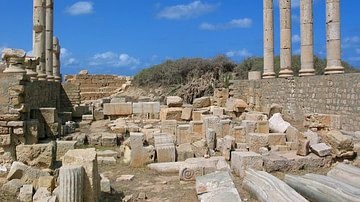
Definition
Leptis Magna
Leptis Magna (aka Lepcis Magna), located in western Libya, North Africa, was a Phoenician city founded by Tyre in the 7th century BCE. Continuing to be a major city in the Roman period, it was the birthplace of Emperor Septimius Severus (r...
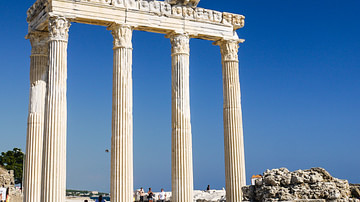
Definition
Side
Side (pronounced see-day) was a city on the southern coast of Cilicia (modern-day Turkey) first settled in the 7th century BCE by immigrants from Cyme, an Aeolian municipality to the north near the kingdom of Lydia. Its name means 'pomegranate'...
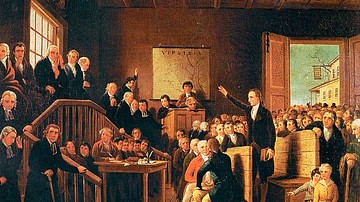
Definition
Parson's Cause
The Parson's Cause was a legal and political controversy that arose in the British colony of Virginia in the early 1760s. In response to the royal veto of the Two Penny Act, a policy passed by Virginia's House of Burgesses, a young lawyer...

Article
Trade in Ancient Greece
Trade was a fundamental aspect of the ancient Greek world and following territorial expansion, an increase in population movements, and innovations in transport, goods could be bought, sold, and exchanged in one part of the Mediterranean...

Article
Trade in Medieval Europe
Trade and commerce in the medieval world developed to such an extent that even relatively small communities had access to weekly markets and, perhaps a day's travel away, larger but less frequent fairs, where the full range of consumer goods...
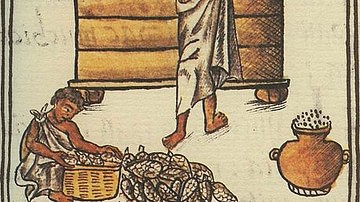
Article
Aztec Food & Agriculture
The Aztec civilization, which flourished in central Mexico between c. 1345 and 1521 CE, was able to provide an astonishingly wide range of agricultural produce thanks to a combination of climatic advantages, diverse artificial irrigation...
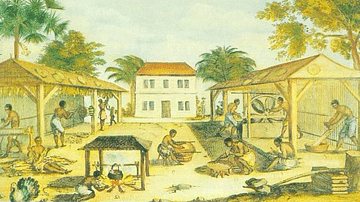
Article
African Slave Life in Colonial British America
African slave life in Colonial British America was far worse than slavery practiced in the Americas prior to the arrival of Europeans. The indigenous tribes took people as slaves in raids, enslaved those convicted of crimes, and traded slaves...

Article
Madhubani Paintings: People’s Living Cultural Heritage
Mithila, a region in the state of Bihar, northern India (and also stretching into Nepal), has an important tradition of knowledge in the form of paintings. Madhubani paintings (also known as Mithila paintings) have been practised by the women...
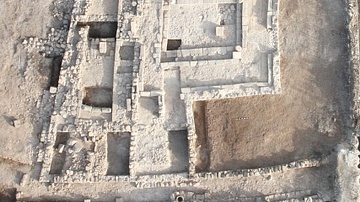
Article
The Archaeological Excavations at Magdala
Magdala, known as Migdal in Hebrew (מִגְדָּל: tower) and also as Taricheae (Ταριχέα, from the Greek Τάριχος or tarichos: preserved by salting or drying fish), was an important fishing town during the first century CE on the western shore...
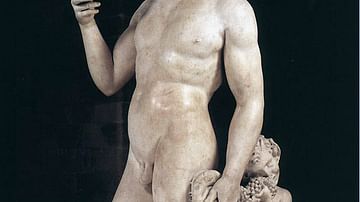
Article
Copies & Fakes in Art during the Renaissance
The Renaissance period witnessed a great renewed interest in the art of antiquity. There was an appreciation of the technical skill required to produce such objects as a Roman marble figure of Venus and an admiration for the form and beauty...